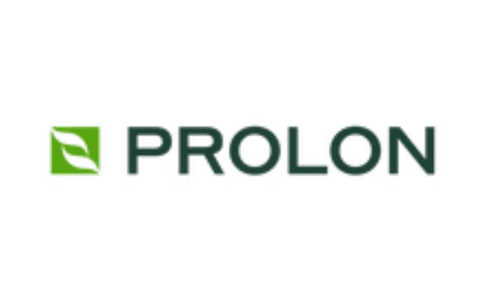In this episode of Pathways to Healing, we spoke with Dr. Amy Price Neff, a licensed naturopathic doctor and expert in terrain-based cancer care. Our discussion explored the foundations of body terrain, how fasting affects the body’s healing environment, and how to safely explore self-care practices. Below are five key questions from the conversation—along with Dr. Neff’s thoughtful responses, in her own words.
Find our complete library of podcast episodes on Apple and Spotify
Amy Price Neff is the founder of MindStream Integrative Medicine, a full-spectrum primary care, mental health, metabolic and integrative medicine practice in Nashville. Trained in internal and family medicine at the University of Virginia, she has done fellowships in faculty development, outpatient psychiatry and substance abuse treatment following residency, and followed that up with integrative medicine at Arizona, Psychedelic Assisted Psychotherapy with Integrative Psychiatry Institute in Boulder, and has trained in Integrative Oncology with the Metabolic Terrain Institute of Health.
In addition to healthcare, Amy has worked in both private and non-profit business sectors to promote human flourishing. She founded a high-animal welfare butcher shop and restaurant in Norfolk, Virginia called Pendulum Fine Meats. She has served in many capacities for A Greener World, the premier international non-profit food labelling and farm auditing organization dedicated to helping consumers find and support high-welfare, environmentally sustainable food production and regenerative agriculture, where she currently serves as President of the Board. She’s currently engaged with several Nashville-area non-profit and entrepreneurial entities which promote simple, person-centered, minimally profit-focused offerings. Amy and her husband, Eric, have persevered through a few medical experiences of their own, and are so fortunate to be perpetual students of their 3 daughters, their growing cattle herd, and the farm they call home.
1. What is body terrain?
“Terrain—this term is speaking to the environment, the milieu. And it’s important to understand that it’s not just what’s going on inside, but it’s also where you’re planted. It’s the microenvironment of our world. It’s the house you live in, the built environment, your neighborhood, the air quality around you.
Within body terrain, there are factors that you’re in control of, and then some which you inherit—ancestral factors like genetics, epigenetics. It is the container that you show up in. The concept of the terrain provides a framework to be more engaged with your treatment. You can engage more deeply with your microenvironment… and by doing that work, you begin to stack up different things that ultimately have a greater likelihood of affecting positive outcomes in your treatment.”
Dr. Neff emphasizes that terrain-based thinking allows people with cancer to go beyond symptom management and play an active role in their healing—by nourishing the whole system rather than focusing only on the disease.
2. Do you need to work with a practitioner to explore body terrain?
“Getting a basic understanding of terrain factors, like inflammation, will show you there’s a lot you can do on your own. You might already be getting blood tests that tell you about inflammation, like c-reactive protein. What you’ll learn from the CancerChoices inflammation article › is that exercise, sleep, or diet shifts can positively impact that. You might make a change and think, ‘I’m going to get them to do that test again,’ so I can see if what I did has made an impact.
Often in my work I say it’s important to know the numbers, but it’s also important to check in on: How do you feel? Do you feel better having done this self-care work? Because self-care is hard. The whole purpose of doing this heavy lift… should manifest in overall feeling better.”
In other words, terrain care isn’t only about labs and biomarkers—it’s about your lived experience, how your body feels, and how empowered you are to notice those changes. And while a practitioner can guide the way, much of this work begins with personal awareness and experimentation.
3. How can fasting impact the body’s terrain?
“Fasting has an impact on a variety of different terrain factors—like toxin burden, stress and biorhythms, blood sugar response, genetics and epigenetics, the microbiome, hormone health, and even mental and emotional health. These are all directly impacted by fasting.
Fundamentally, fasting is a change in your diet. It can be restricting a particular kind of nutrient, like low-carb or low-protein, or not eating for certain periods of time. There’s intermittent fasting, alternate-day fasting, overall calorie restriction diets like the fasting mimicking diet, and then prolonged fasts.”
Fasting, in Dr. Neff’s framework, is a metabolic intervention—not just a wellness trend. Different fasting strategies can be used to influence inflammation, blood sugar, immune balance, and even chemotherapy response, depending on the terrain factors at play. It’s not a one-size-fits-all strategy, and it needs to be chosen thoughtfully.
4. What should people know before starting a fast, especially during treatment?
“I have basic rules for fasting—one of which is: if you’re white knuckling it, you’re not really fasting. Inner stress is indicative of a high cortisol level… and with high cortisol comes higher blood sugars, which turn off the body’s ability to mobilize fats. You’re burning muscle. We don’t want to do that.
There are several different protocols for fasting around chemo. The most well-known is Valter Longo’s fasting mimicking diet (FMD). It’s a low-calorie, low-protein vegan diet for five days—about three days before chemo, day of, and day after. It’s safe, well tolerated, and can improve quality of life, reduce fatigue, and increase response to chemo.”
For patients in active treatment, Dr. Neff recommends a cautious approach. The wrong kind of fasting—or one done under stress—can actually backfire. The fasting mimicking diet (FMD) is an evidence-supported approach that can help protect healthy cells and make cancer cells more vulnerable to treatment, but it should be implemented with care and ideally under guidance.
5. What if a patient’s doctor is not open to integrative practices like fasting?
“If you mention something like fasting to your clinic and they give you a hard no—I just want to imbue people with an awareness that there is a lot of clinical literature that supports fasting for patients with cancer. You’re not crazy.
You could say, ‘I’m pretty sure there’s good literature to support this—would you be willing to look at it?’ And then… go to the mtih.org website—the Metabolic Terrain Institute of Health. There are advocates trained in diets and using ketone meters. Those advocates can be a tremendous resource. I would start there.”
Dr. Neff reminds listeners that patients have agency, even when facing resistance from conventional providers. Finding a practitioner or trained advocate familiar with fasting protocols—especially those for people with cancer—can make a huge difference in safety, personalization, and confidence.
Helpful links
Studies mentioned in the podcast
Calabrese L. Remission of OCD and ulcerative colitis with a ketogenic diet: case report. Frontiers in Psychiatry. 2025 Apr 3:16:1541414.
Tiwari S, Sapkota N, Han Z. Effect of fasting on cancer: a narrative review of scientific evidence. Cancer Science. 2022 Oct;113(10):3291-3302.
Biyikoglu H, Robertson MD, Collins AL. Isolating the acute metabolic effects of carbohydrate restriction on postprandial metabolism with or without energy restriction: a crossover study. European Journal of Nutrition. 2025 Mar 20;64(3):133.
Vernieri C, Ligorio F, Tripathy D, Longo VD. Cyclic fasting-mimicking diet in cancer treatment: preclinical and clinical evidence. Cell Metabolism. 36(8), 1644–1667. 2024 Aug 6;36(8):1644-1667.
Christine has a dynamic background in the life sciences, public health, and program operations. Her career began at the lab bench with a Gates Foundation-funded HIV Vaccine research group, which led her to graduate studies in public health epidemiology at UC Berkeley. Her research experience spans clinical epidemiology research to evaluating the impacts of community nutrition programs in Los Angeles, the Central Valley, and Oakland. Most recently she has worked in executive operations for a seed-stage venture capital firm based in San Francisco. Personally, Christine is passionate about holistic health and wellness. She is a clinical herbalist and Reiki master, and she has been practicing yoga for 15+ years. She brings a breadth of experiences to her work leading the CancerChoices program.



